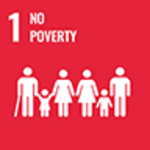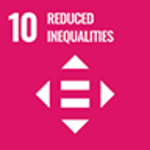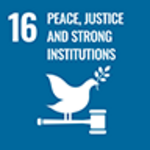
Professor Yasuo Tsuji
Affiliation: Graduate School of Law (School of Law)
Areas of Specialization: Political Theory, Political Thought
Research Keywords: Multiculturalism, Liberalism, Social Capital
Alma mater: Prefectural Chiba High School
Final education: McGill University, Graduate School of Political Science
*This article was originally published in the 4th issue of "Frontiers of Knowledge" and has been re-edited for the web.
what are you researching?
My research theme is to elucidate the history of the development of liberal thought and to consider the form it should take in today's society. I am currently working on research on “multiculturalism”. When people with different cultures exist in one society, what kind of social order is fair for all parties? This is the concept of multiculturalism.

Multicultural city toronto road sign
There are various types of groups when it comes to minorities. The first is "regional and linguistic minorities," groups such as Quebec in Canada and Catalonia in Spain that have maintained their own language and religion since ancient times. These groups often seek to maintain their cultural identity and greater autonomy, and when this is unacceptable, they may seek independence. The second is “migrant groups”. Immigrants are people who leave their home country and move to a new country. Human migration has always existed in human history, but it has become even more active since the modern era. Immigrants want to be integrated into the societies to which they migrate, but in doing so they may want to modify the institutions of mainstream society in order to preserve their unique culture. Thirdly, “indigenous people” have recently been increasing their presence. Groups whose land had been taken by settlers and whose culture had been suppressed began to raise their voices demanding the restoration of their culture and rights. Theories of multiculturalism consider how each of these groups is best treated.
Why is such research needed now?

London, a cosmopolitan city where diverse people live
Multiculturalism is a new research area. Until recently, the institutions of the modern state have been built on the assumption that the cultures of the people are homogeneous. The dominant idea was "assimilationism" that minorities with different cultures should abandon it and accept mainstream culture. However, today it is difficult to implement such a policy. Originally, the notion of a homogeneous nation is a far-fetched assumption. Ethnic minorities always exist in any country, and it is inevitable that their presence will grow in the face of globalization. Then why should we not impose mainstream culture? This point can be easily understood by imagining people who have emigrated overseas raising their children. In other words, is it possible to teach children the language of the country, discipline them in the culture, and discuss their worries in the language? When immigrant children are cut off from their parent's culture, they are unable to communicate with and receive help from their parents. As a result, they are more likely to fail in their studies and become social outcasts. Another reason is that assimilation policies create unequal relations between the mainstream and minorities. Assimilation policies in the past have been linked to policies that discriminate against minorities, with notions of inferiority in minority cultures. Under these circumstances, there is now an international consensus that minority groups should be guaranteed the right to enjoy their own culture. Regarding indigenous peoples, the United Nations Declaration on the Rights of Indigenous Peoples was adopted in 2007, and policies for the Ainu people are being developed in Japan as well.
Where is the difficulty?
Even if you say "respect the culture of minorities" in one word, there are many ways to do it, depending on the characteristics of minority groups and cultures and the circumstances in which they are placed. The most appropriate method should be selected according to each case. For example, Islam, which has precepts about dress, gender relations, and family relations, tends to cause conflicts with the mainstream social system and requires reconciliation between the two, but there are many religions that do not face such difficulties. exists. Indigenous peoples include people living in remote reservation areas and people living in cities, and the policies required by each are different. Moreover, there are serious dilemmas around whether we should respect oppressive cultures that are incompatible with democratic societies, such as those that deny gender equality or gay rights. Therefore, it is not the case that theories made in other countries should be applied to Japan as they are.
What kind of research are you aiming for in the future?
My goal is to create a general theory of multiculturalism while referring to examples from around the world, and to propose appropriate policies that take Japan's circumstances into account. Since the goal of multiculturalism is to integrate minorities under fair conditions, it is necessary to organically integrate cultural policies and socio-economic policies.
Reference book
- Charles Taylor et al., Multiculturalism (Iwanami Shoten, 1995)
- Will Kimlicka, Citizenship in the Multicultural Age (Koyo Shobo, 1998)
- Yasuo Tsuji, “Multiculturalism and Religious Minorities” (Annual Report on Politics, 2013-I)





















